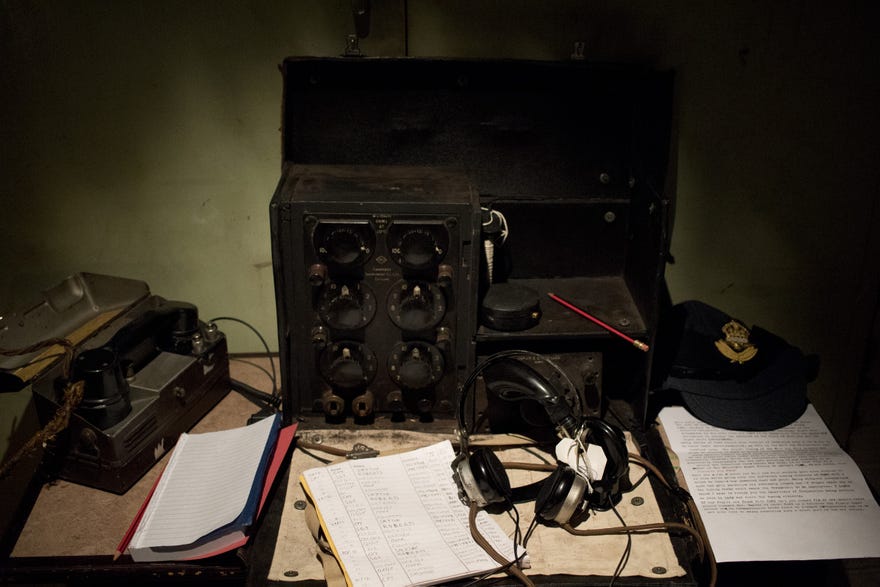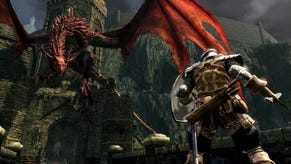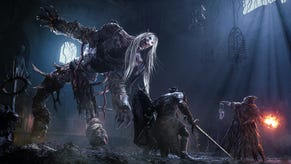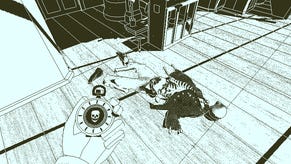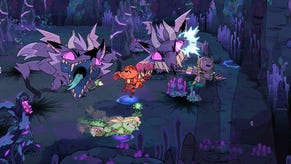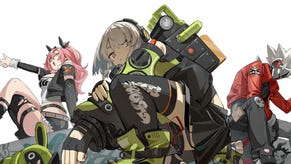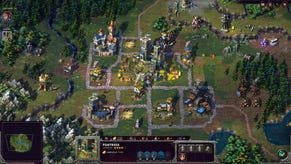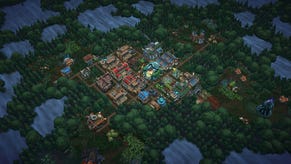WWII live game For King and Country shows games and theatre are only getting closer
You can't fight in here! This is the War Room!
World War II, unsurprisingly, is a massive part of our collective history and imagination. So much media – games especially – allow us to place ourselves in that time. But this is also where I feel games show a lack of imagination. I’m self aware enough to know that I’d not have done very well on a French beach or in a German ditch, holding an incredibly unreliable gun. I would not survive Battlefield V. When I imagine my own idealised participation to the conflict, I’m a general or politician in the war room.
We don’t see too much of this in the modern gaming landscape; yes you get to move soldiers about in RTS, but I somehow doubt that that’s exactly how actual generalling works. These are things that are hard to simulate in the style of modern games, particularly the big budget blockbusters - but games are getting there, with a bit of help from theatre kids.
Video games have had a massive impact on our culture. They’ve changed how we perceive media. We don’t just want to be viewing or spectating anymore, we want to be the hero. And that’s changed how a lot of people are creating for other mediums, particularly in a growing trend of the 21st century: live games. You can see the influences. Live games use the structure of video games, but in the real world – using actors and built sets instead of ones and zeroes. A lot of live games are created by people with a theatre background – partially because they know best how to make amazing things in the real world, and partially because our secret is that a lot of theatre nerds cared more about people like Miyamoto than Shakespeare growing up (myself included).

Which brings us neatly back to WWII, with a theatre show called For King and Country by a company called Parabolic Theatre, which ran until August. RPS has talked about the collision of games and theatre before, in a piece by James Carney on live VR experiences; For King and Country brands itself as a piece of theatre, but it is definitely on the live game end of the spectrum. But it’s also the first piece of theatre that’s planned to be turned into a video game. An entertainment ouroboros.
In For King and Country you, the audience, are taken down to a bomb shelter in South London and told that the year is 1940 - an insignificant year, as I’m sure you know from history class. You are generally unimportant members of parliament brought here for your safety should anything bad happen to the actual proper Parliament building and the people in it.
Spoiler alert: it does. Everything goes tits up, Parliament is destroyed and suddenly you’re the entire British government. It’s basically the plot of the Kiefer Sutherland series Designated Survivor, but in Britain and with a lot more Nazis. So, from your audience you must choose a Prime Minister, Minister for War, Minister of Propaganda, and so on, and begin repelling the rapidly escalating German invasion on England’s southern shores. The mechanics of the game are so simple it's fascinating. As you’re in a bunker locked away from the road, all of your orders are done by telephone calls and telegrams. A team of game masters upstairs reacts to your every decision, deciding the consequences for every order you give.
As the show progresses you have to make a lot of decisions. Where do you bomb with your fighters? Where do you send reinforcements? Which other countries can you call for help? How do you deal with food shortages and evacuating civilians? And personally, I found this much more exhilarating than running around shooting lads on a beach until I eventually catch a bullet myself. It was an incredible experience.
I played as the Minister for War, which is where you can see the video games influence in the show most obviously. I was given a map of the south of England, with various pins to denote British and German troops, unit types, etc. What played out for me was a kind of turn based strategy game, where I moved British units around to resist the Nazi invasion. Occasionally the head of the RAF would swing by and coordinate a bombing, or the chief of M16 would show up with the position of a German sub – all these people were my fellow players working their own roles and missions. In a video game you’re limited to the options provided by buttons on your keyboard or controller, and consequences are limited to what the game designers planned in advance. Even in the most innovative and ingenious games, even in multiplayer games, there is always this limitation.
In for King and Country, we had the limitless possibilities of the human imagination. At one point I asked an actor if I could speak to the Irish Prime Minister, and the actor respond with “We have not been able to reach Mr de Valera so far, sir, but we can certainly try.” The Irish then end up being the middlemen in a peace treaty between Britain and Germany (we didn’t sign it obviously, its fucking Hitler, but it bought us time). Moments like this made me feel anything is possible in this experience. A feeling I haven’t felt in a video game since I played Mario 64 when I was 8 years old, and I didn’t know where the walls were.
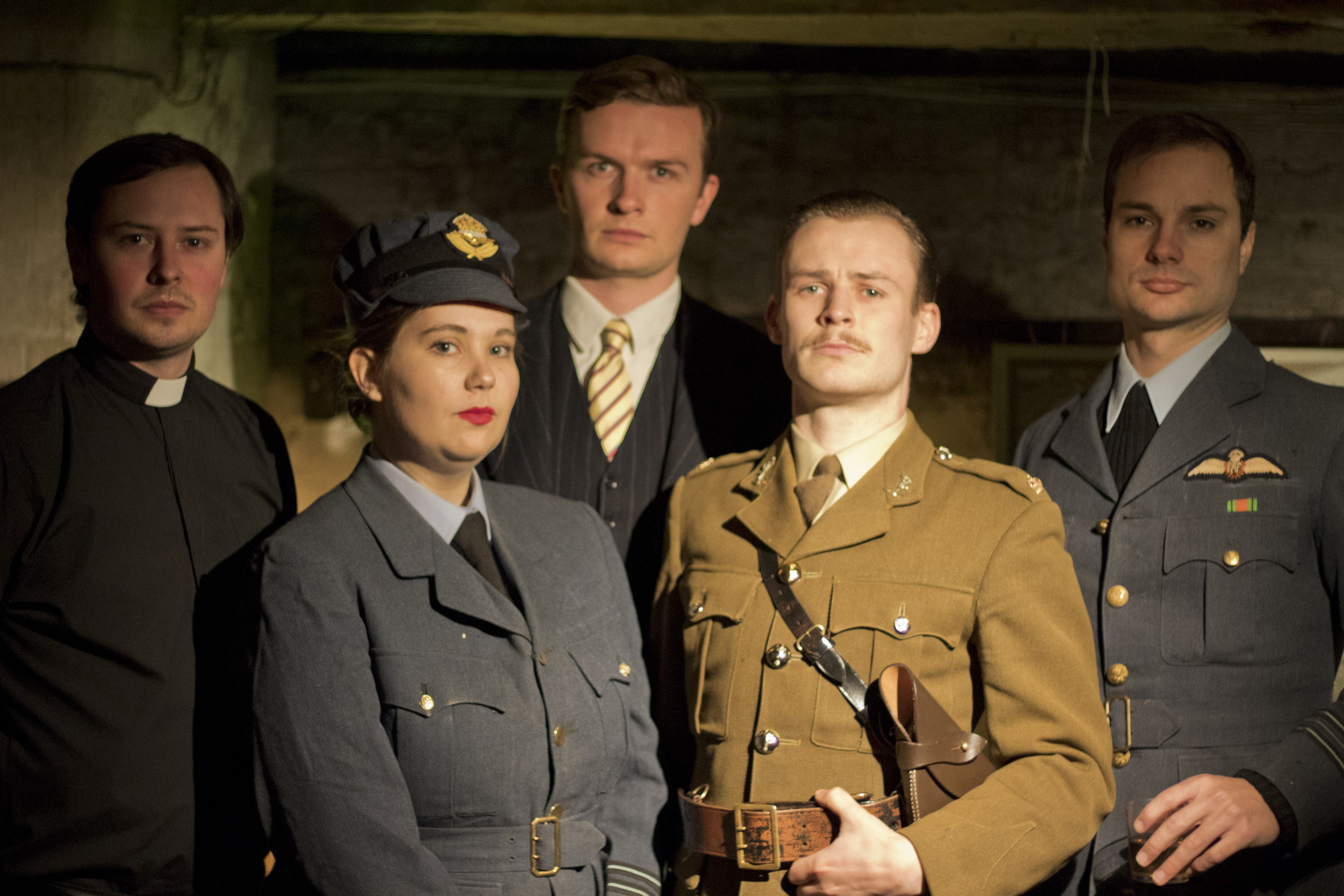
The world of live games is moving into very interesting places, and while they lack some of the advantages of video games – most notably consequence free violence and the ability to tell the laws of physics to jog on – they also lack many of video games’ limitations. Which is what makes live games a fertile ground to experiment and try things you simply couldn’t do in video games, and pick up what works. It makes sense that game developers should start watching this space carefully and see what comes out of it, and more of the video game playing public should get into live games to broaden their horizons of what’s possible.
This is what makes it so interesting that For King and Country is being made into a video game. It’s using a platform called Charisma.ai, a system that uses storytelling techniques coupled with game design and what is essentially advanced chatbot AI. This creates characters that can improvise back to what players throw at them. By rooting the system in strong characters and context, Charisma.ai can create theoretically real conversations, making each storyline unique. Which is what makes For King and Country an excellent source material for this system. I’m really excited to see where it goes.
Sadly, I wasn’t the best Minister for War. I steadily lost my strategy game, until the finale where the entire war cabinet was crowded around a map of London. A vicious RTS battle was played out (again with pins), between the colossal invading German force and the last dregs of the British resistance. In the end we made a great sacrifice to cut off the German invasion, and blew all the bridges along the Thames. This left the Nazis south of the River, with our forces on the north able to regroup and fight another day. There was one small problem – our bunker was South of the River. As we got news that our fleeing forces and civilians had been saved, we heard the door of our bunker being broken down.
